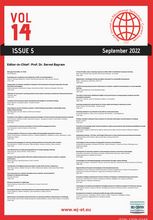Examining user acceptance and satisfaction of HE’s E-learning platform
Examining user acceptance and satisfaction of HE’s E-learning platform
Author(s): Albertus Dwiyoga Widiantoro, Cecilia Titiek Murniati, Heny HartonoSubject(s): Higher Education , ICT Information and Communications Technologies, Distance learning / e-learning, Pedagogy
Published by: Birlesik Dunya Yenilik Arastirma ve Yayincilik Merkezi
Keywords: self-efficacy; e-learning; satisfaction; continuance intention;
Summary/Abstract: The purpose of this study is to determine the determinants of user satisfaction (USat) and continuance intention (CoIn) to use e-learning platforms in Indonesian universities. More specifically, this study examines the effects of system quality (SisQua), information quality (InfQua), confirmation, perceived usefulness (PU) and self efficacy (SE) on USat and CoIn to use e-learning platform. The expectation-confirmation model and technology acceptance model were used to test the hypotheses with 340 students. This research uses purposive sampling. Surveys were administered for 340 college students. To test the correlation among the variables, the structural equation model was used. This study showed that InfQua, PU, SE, service quality and SisQua positively affected USat. The data analysis indicates the positive effect between SE and USat and CoIn to use e-learning. However, InfQua had a negative effect with USat. This study has several implications for higher education (HE). First, to increase USat, universities should provide excellent services, technical support and user training and workshops for their e-learning platforms, including new features and functionalities so that students can take utmost advantage from them. Students who are contented with their e-learning platform are more likely to keep using it.
Journal: World Journal on Educational Technology: Current Issues
- Issue Year: 14/2022
- Issue No: 5
- Page Range: 1234-1245
- Page Count: 12
- Language: English

